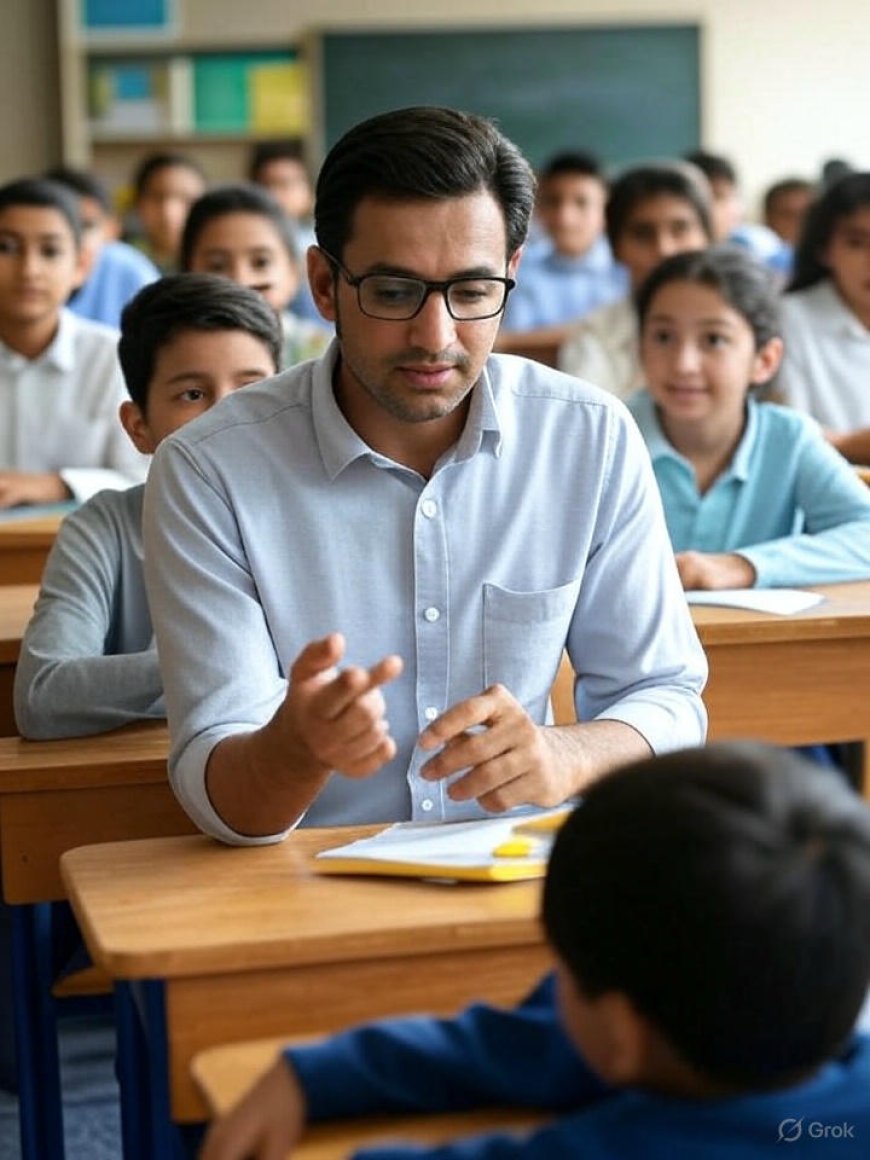The Future of the Education System: Innovation, Equity, and Digital Transformation
Explore the future of education with insights on technology, personalization, and global learning trends shaping tomorrow’s classrooms.

As we advance into an era defined by artificial intelligence, automation, and global interconnectivity, the education system must undergo a radical transformation. Traditional classroom models, while foundational, are no longer sufficient for the demands of the 21st century. The future of the Education system hinges on adaptability, personalization, and the smart integration of technology.
“Education is not the learning of facts, but the training of the mind to think.”
1. From Standardization to Personalization
Historically, education systems have been designed on a standardized model — a "one-size-fits-all" approach where students are taught the same material, at the same pace, using the same methods. However, the future belongs to personalized learning.
Artificial Intelligence (AI) will play a key role here. Intelligent learning systems will assess student performance in real-time and adapt lesson plans to match individual learning speeds, interests, and cognitive styles. For instance, a student struggling with algebra may receive interactive tutorials tailored to their weaknesses, while a student excelling in history can access advanced materials.
2. Education Anywhere, Anytime
The rise of e-learning platforms, virtual classrooms, and mobile education apps signals a shift away from the classroom as the sole learning space. Education in the future will be decentralized — learning can happen at home, in community hubs, or while commuting.
With 5G and satellite internet expansion, students even in the most remote areas will have access to high-quality education. Digital classrooms will not just replicate physical ones but offer enhanced experiences via augmented reality (AR) and virtual reality (VR).
3. Skills Over Scores
Another crucial evolution in education is the emphasis on competency-based learning. The future system will prioritize skills, creativity, and critical thinking over rote memorization and test scores. Students will be evaluated on their ability to solve problems, collaborate, and innovate — not just on how well they regurgitate information.
Table 1: Traditional Education vs. Future Education System
| Feature | Traditional System | Future System |
|---|---|---|
| Learning Style | Standardized | Personalized & Adaptive |
| Evaluation | Exams and Grades | Competency-Based Assessment |
| Learning Environment | Physical Classrooms | Virtual, Augmented, Hybrid |
| Curriculum | Fixed | Flexible and Modular |
| Teacher Role | Knowledge Provider | Facilitator & Coach |
| Student Role | Passive Learner | Active, Self-Directed Learner |
| Access | Location-Bound | Global and On-Demand |
In the future, the teacher's role will evolve from information provider to learning facilitator. AI and tech tools will handle repetitive teaching tasks, The Educators to focus on mentoring, problem-solving sessions, and personalized support.
Teachers will be trained in digital pedagogy, data analytics, and emotional intelligence — helping students not just academically, but socially and emotionally as well.
5. The Rise of Microlearning and Modular Courses
Gone are the days when education was divided strictly into K-12 and university degrees. The future system will support lifelong learning, where individuals continuously upskill through short, modular courses.
Platforms like Coursera, edX, and Udemy already allow learners to access courses from top universities. These microcredentials and nanodegrees will be recognized by employers and institutions, bridging the gap between education and the job market.
6. Global Classrooms and Cultural Exchange
The education of tomorrow will not be bound by geography. Students from different continents will collaborate in virtual international classrooms, learning not only from textbooks but from each other’s cultures and perspectives.
Language translation AI, real-time collaboration tools, and cloud-based sharing will support seamless interaction across the globe. This will foster global citizenship, empathy, and cross-cultural competence — essential skills in an interconnected world.
7. Emotional Intelligence and Well-being in Focus
Mental health and emotional intelligence are emerging as critical components of education. Future systems will integrate SEL (Social-Emotional Learning) as a core element, helping students build resilience, empathy, and interpersonal skills.
Digital platforms will also use AI to detect stress, anxiety, or disengagement, alerting educators and counselors when intervention is needed. This well-being-centered approach will produce not just educated, but emotionally healthy and socially responsible individuals.
8. Gamification and Engagement
Learning in the future will be fun, engaging, and immersive. Gamification — the use of game mechanics in education — will be a dominant trend. Students will earn points, badges, and achievements for completing tasks, which will foster motivation and competition in a healthy way.
VR and AR will allow students to explore ancient civilizations, dissect virtual organisms, or walk through 3D models of atoms. This experiential learning will deepen understanding and retention.
9. Bridging the Digital Divide
While the digital shift brings promise, it also highlights a stark issue: the digital divide. Not every student has equal access to devices, internet, or digital literacy.
Governments, NGOs, and private sectors will need to collaborate to ensure universal access to digital education tools. Without inclusive strategies, the risk is a future where the education system becomes more unequal, not less.
10. Education Meets Artificial Intelligence
AI will be deeply embedded in every layer of education — from automated grading to adaptive testing, intelligent tutoring systems, and predictive analytics that forecast student success.
For example, AI can identify early signs of dropout risk or recommend customized learning paths. Teachers will use AI as a co-teacher, helping manage workload and improve classroom effectiveness.
Conclusion
The future of the education system is not just about technology — it’s about creating a human-centered, inclusive, and adaptable model that prepares students for an unpredictable future. We must focus on equity, flexibility, and skills rather than outdated benchmarks of success.
“The illiterate of the 21st century will not be those who cannot read and write, but those who cannot learn, unlearn, and relearn.”
As society evolves, so must our education systems — not just to keep pace, but to lead.
Read More .. The Education System









































































